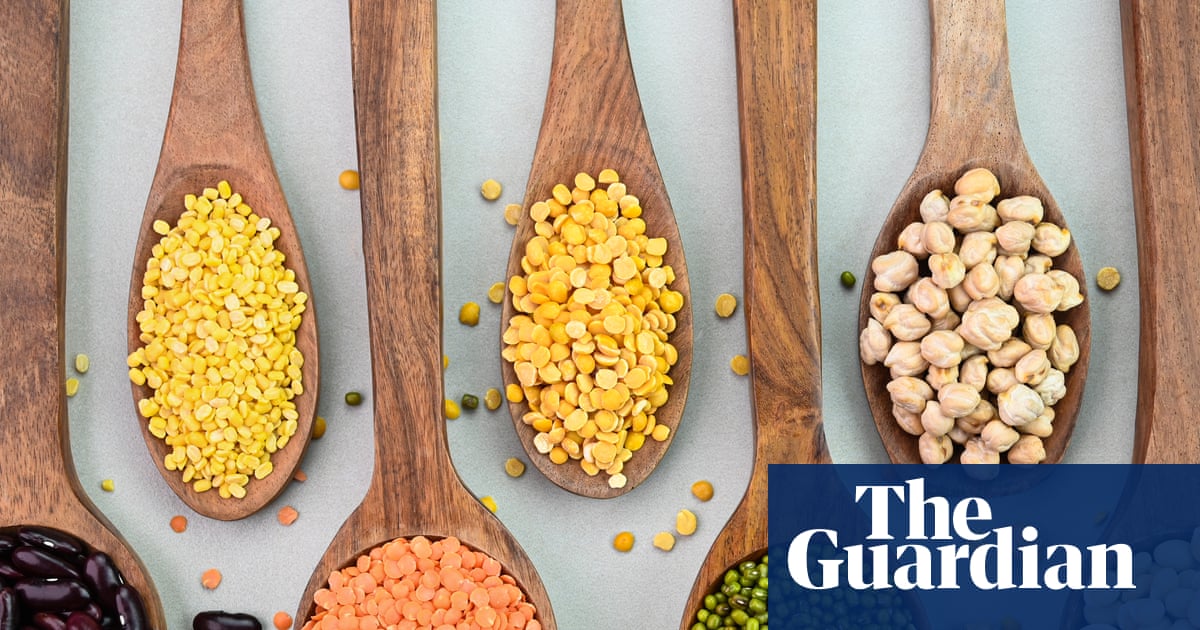
"According to a study by the University of Reading, adults who eat more pulses—dried beans, peas, and lentils—have a higher intake of nutrients including fiber, folate, and vitamins C and E."
"Eating pulses was associated with a more sustainable diet, as many are nitrogen fixers, positively impacting soil fertility and promoting sustainable agriculture practices."
"Justine Butler states that the lowest-impact beef still creates six times the greenhouse gases and uses significantly more land per gram of protein than peas, emphasizing the environmental advantages of pulses."
"The typical British adult eats only about 15g of pulses a day, with UK guidelines recommending 80g as part of the five-a-day fruit and vegetable intake."
Pulses, including beans, peas, and lentils, provide significant health benefits, such as higher fiber and vitamin intake while reducing saturated fat and sugar. A study from the University of Reading indicates that consuming pulses contributes to a more sustainable diet due to their nitrogen-fixing properties. Comparatively, pulses create lesser environmental impacts than traditional beef, which uses more land and produces more greenhouse gases. Despite their advantages, UK adults only consume about 15g of pulses daily, below the recommended intake of 80g as per dietary guidelines, presenting an opportunity for improvement in public health and nutrition.
Read at www.theguardian.com
Unable to calculate read time
Collection
[
|
...
]